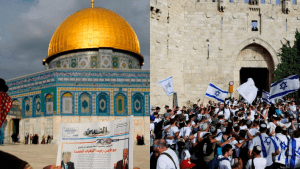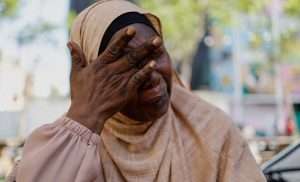Tunisia: EU policy in action – migrants dumped in the desert

Barely days since Tunisia hosted both EU leaders and the Italian PM, who both pledged close to 2bn USD to help its floundering economy and the real reason behind the assistance is revealed. The Tunisian president appears to have swiftly ordered the mass deportation of African migrants there who have been dumped in the desert.
Since 3 June, over 400 sub-Saharan migrants and asylum seekers were reportedly forcibly expelled to the Libyan border, amid an escalation of anti-migrant sentiment in the North African state after the death of a Tunisian man during clashes with a group of migrants in Sfax, according to the London based Qatar-backed New Arab website.
Tunisian security forces deported the first group of twenty migrants, including a pregnant woman and a child to the Ben Gardane Area, a militarised Tunisia-Libya border zone.
The next day, hundreds were dropped in the same area, including dozens of children, women, and migrants with asylum seeker status. The group includes reportedly nationalities from Cameroon, Mali, Guinea, Côte d’Ivoire, and Chad.
Human rights activists say many of the migrants were severely injured during the deportation process.
“We were forced to spend the night in the desert area with no tents, no food,” said one of the deported migrants.
“They broke most of the people’s phones during the deportation,” he added.
Presently, an estimated 400 to 500 sub-Saharan migrants are stranded in the area. Those who managed to keep their phones safe are struggling to continue documenting their tragedy as they have no access to electricity or free internet.
The exportations are set to continue in the next few days.
Human rights activists say they are still waiting on authorisation to access the zone.
On June 4th, The Tunisian Presidency said that President Kais Siaed had a phone call with Abdul Hamid Al-Dabiba, Head of the Libyan National Unity Government, in which they discussed “the phenomenon of irregular migration and the need for concerted efforts to find quick solutions.”
Both states have yet to issue an official statement about the situation.
On June 2nd clashes between migrants and residents broke out in Sfax, the country’s most migrant-populated city causing mass damage to nearby houses and vehicles.
The clashes escalated on June 3rd taking a more aggressive turn after a Tunisian man was stabbed to death by three migrants, according to the spokesman for the Sfax prosecution Faouzi Masmoudi.

The news of the murder quickly spread via a video posted on social media showing the dead man’s body in the street and a trail of blood.
The video sparked a torrent of reactions, often with racist overtones, calling for the expulsion of African migrants from the city and for the avenge of the man’s death.
Both the European Union and the Italian government have made it clear that they endorse the policy which reduces the numbers of migrant crossings although they were both careful to make sure that their statements recently made in a staged press conference on June 12th did not focus on the plight of the African migrants specifically, raising concerns that they knew that President Saied would use such harsh methods in tackling the problem head on.
New Arab/Agencies
Want to chase the pulse of North Africa?
Subscribe to receive our FREE weekly PDF magazine














